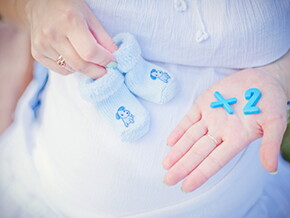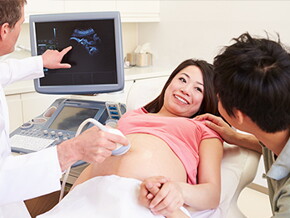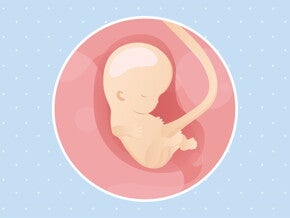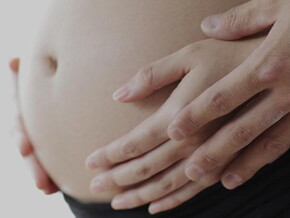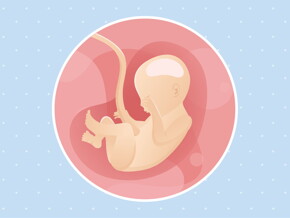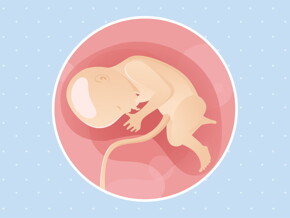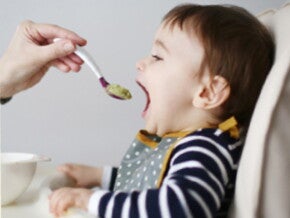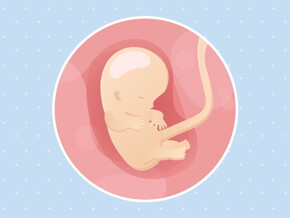
Why fatherhood begins before conception
When talking about eating for a healthy pregnancy, moms tend to get all the attention. But there’s growing evidence that a dad’s lifestyle and weight might also be a factor in fertility.
The dads-to-be diet
Men who are overweight are more likely to have a lower sperm count than men who maintain a healthy weight. Emerging research also indicates that losing weight may have a positive effect on a man’s sperm. The quality of dad’s diet matters too. We used to think some nutrients, such as folic acid, were only important for moms. However, scientists have discovered that men may need vitamins and minerals to help conception as well. “A diet rich in fruit and vegetables, which provides fiber, vitamins, and antioxidants, may be beneficial for both mom’s and dad’s fertility,” says Dr. Robert DiGregorio, D.O., Head of Global Regulatory Affairs at Nestlé Nutrition.
Eating for a “baby-ready” body
Of course, it’s not all about him. What you eat and how much you weigh may also influence your chances of becoming pregnant. Research indicates that would-be moms may influence their fertility by staying at a healthy weight and looking at their diet. Eating foods rich in vegetable protein, such as beans, and healthy fats, such as olive oil, can play a part. Choosing complex carbohydrates, instead of refined or high-sugar foods, may help keep your blood sugar stable, which can also be a factor in fertility.
“Another study suggested that women who take multivitamins with folic acid at least three times a week may be less likely to have ovulation infertility, which would be important when you want to conceive,” explains Dr. DiGregorio
Eating a nutritious diet can also help ensure that when you do conceive, your developing baby has all the nutrients needed to grow healthily even before you know you are pregnant. “When thinking about starting a family, ensuring both parents-to-be have a healthy diet and weight is a very good place to start,” advises Dr. DiGregorio.
Sources
Braga D, Halpern G, Figueira R et al. Food intake and social habits in male patients and its relationship to intracytoplasmic sperm injection outcomes. Fertil Steril 2012; 97:53-9.
Chavarro JE, Rich-Edwards JW, Rosner BA et al. Diet and lifestyle in the prevention of ovulatory disorder infertility. Obstet Gynecol 2007; 110:1050-8.
Chavarro JE, Rich-Edwards JW, Rosner BA et al. Dietary fatty acid intakes and the risk of ovulatory infertility. Am J Clin Nutr 2007; 85:231-7.
Chavarro JE, Rich-Edwards JW, Rosner BA et al. Protein intake and dietary infertility. Am J Obstet Gynecol 2008; 198(2):e1-210.e7.doi:10.1016.
Chavarro JE, Rich-Edwards JW, Rosner BA et al. Use of multivitamins, intake of B vitamins, and risk of ovulatory infertility. Fertil Steril 2008; 89:668-76.
Chavarro JE, Rich-Edwards JW, Rosner BA et al. A prospective study of dietary carbohydrate quantity and quality in relation to risk of ovulatory infertility. Eur J Clin Nutr 2009; 63:78-86.
Donkin I, Versteyhe S, Ingerslev et al. Obesity and bariatric surgery drive epigenetic variation of spermatozoa in humans. Cell Metabol 2016; 23:369-78.
Eslamian G, Amirjannati N, Rashidkhani B et al. Intake of food groups and idiopathic asthenozoospermia: a case-controlled study. Hum Reprod 2012; 27 (11):3328-36.
Gesink Law DC, Maclehose RF, Longnecker MP. Obesity and time to pregnancy. Hum Reprod 2007; 22 (2):414-20.
Hammoud A, Wilde N, Gibson M et al. Male obesity and alteration in sperm parameters. Fertil Steril 2008; 90:2222-5.
Mendiola J, Torres-Cantero A, Vioque J et al. A low intake of antioxidant nutrients is associated with poor semen quality in patients attending fertility clinics. Fertil Steril 2010; 93(4):1128-33.
Minguez-Alarcon L, Mendiola J, Lopez-Espin J et al. Dietary intake of antioxidant nutrients is associated with semen quality in young university students. Hum Reprod 2012; 27(9):2807-14.
Sermondade N, Faure C, Fezeu L et al. BMI in relation to sperm count: an updated systematic review and collaborative meta-analysis. Hum Reprod Update 2013; 19 (3): 221-31.
Sharma R, Biedenharn K, Fedor J et al. Lifestyle factors and reproductive health: taking control of your fertility. Reprod Biol Endocrinol 2013; doi:10.1186/1477-7827-11-66
van der Steeg JW, Steures P, Eijkemans JC et al. Obesity affects spontaneous pregnancy chances in subfertile, ovulatory women. Hum Reprod 2008; 21(2):324-8.
Wong WY, Zielhuis GA, Thomas CM et al. New evidence of the influence of exogenous and endogenous factors on sperm count in man. Eur J Obstet Gynecol Reprod Biol 2003; 110:49-54.
Last revised: August, 2016

